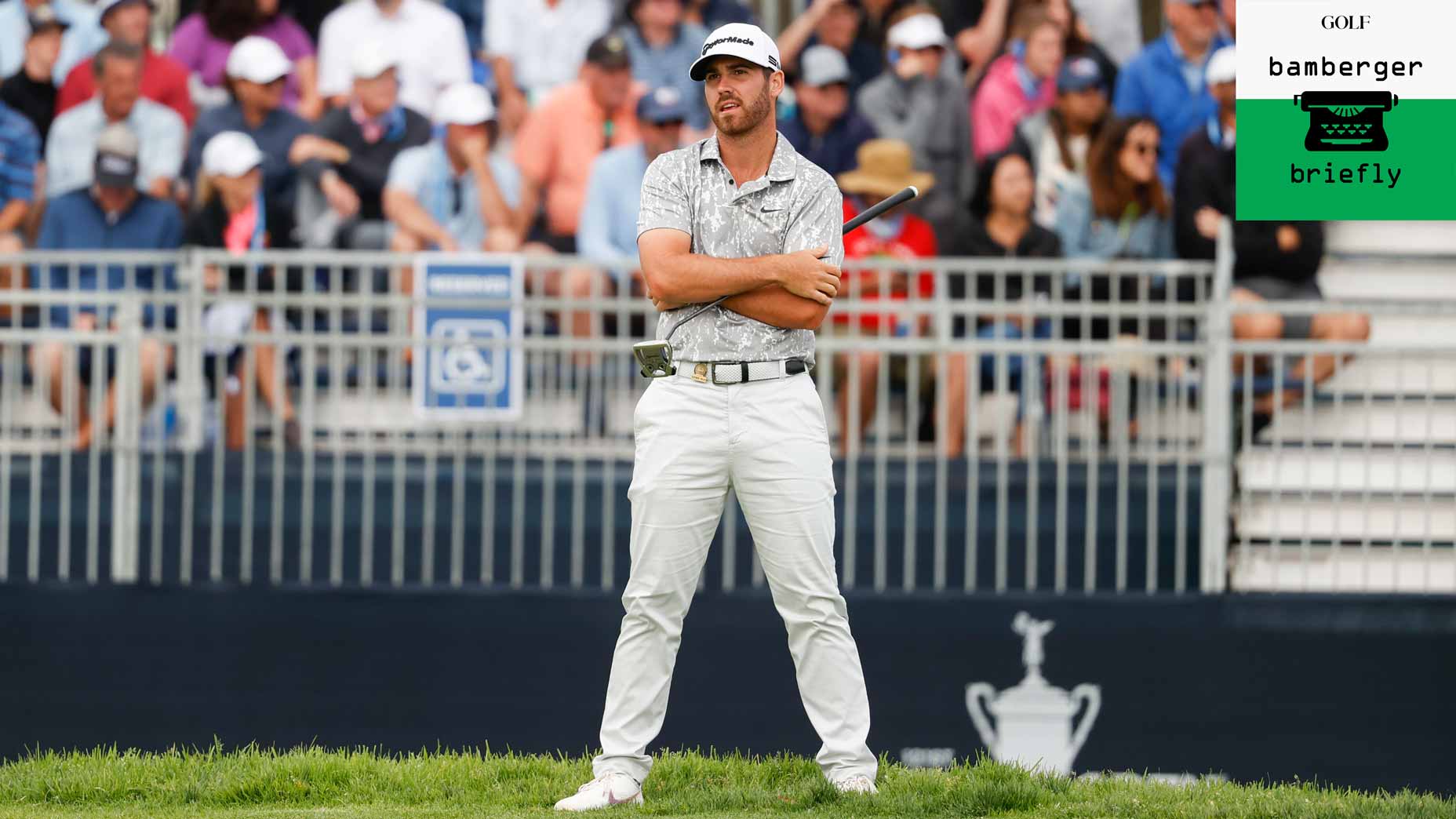— In the longish history of post-round interviews at the midpoint of major golf championships, the interview Matthew Wolff gave late on Friday afternoon is one of the most remarkable ever.
It was just a bearded, physically robust, 22-year-old golfer, with an odd swing and a lot of promise, talking about, when you get right down to it, his mental health, about his happiness and his dark places.
Two weeks or so after Naomi Osaka dropped out of the French Open because of her own mental health issues—including her intense discomfort about having to do do post-match interviews—Matthew Wolff took a completely opposite approach.
But, yeah, I ended up posting a decent score, and today was much better.
Wolff: “The way I describe the U.S.
Reporter: “I think you spent some time up there with Todd was in here earlier talking about the fact that he had actually approached you to talk about some of these issues.
I feel like most people, when I first got on Tour and had that early success, people were coming up to me just to kind of joke around and say what’s up.
And just to hear that and know that someone of his caliber, being at the top, and winning two Masters, as much success as he had—everyone goes through it.
“It’s really awesome to see all the guys out here kind of just not trying to take me under their wing, but just to be there for me.
They won’t talk about anything that would think they’d give somebody else a leg up on them in some way, shape or form when you’re on the golf course.
No matter how many bad shots I hit, if I hit one good, all the fans are going to be like, ‘Oh, that was so good.’ But to me I only see the bad.
“I’m learning every day, and I promise you I’m going to play bad and have a bad stretch probably somewhere, or multiple times before the end of my career.
What’s probably the worst thing that could happen? I could miss the cut? That’s really the worst thing that could happen, but your brain makes you think that you hit a bad shot and like the world’s over or you’re going to physically get hurt or something.
It’s awesome that I came out here and played well, but I think more importantly, I’m just getting closer to being more comfortable and being happy and enjoying it.
Open, I had that fear of playing bad and kind of choking off the lead, per se.
To be quite honest, I really never played as bad as I’ve been playing the last five months from the time I picked up a golf club until literally five months ago.
As good as my life is, 22 years old and on the PGA Tour, there’s also a lot of stress and pressure that comes along with it, and it got to me.
We worked on my swing and getting back to where I kind of—the positions I was in in college and stuff, a little longer and more across.
It’s hard to kind of put them in perspective or put them in play when you’re in the heat of the moment, but I’d say it was more just talking and getting through this.
I’d say my expectations coming here were to enjoy it and be happy, and I didn’t even know if I was going to be able to do that.
Open, and I’m very happy right now and enjoying it, but I know there’s going to be times that I’m not enjoying it as much or not playing as well.
I can’t express it enough that my scores up there, even though I’m happy right now, four under par, one off the lead or whatever, I really could care less about that right now.
He has written a variety books about golf and other subjects, the most recent of which is The Second Life of Tiger Woods.
